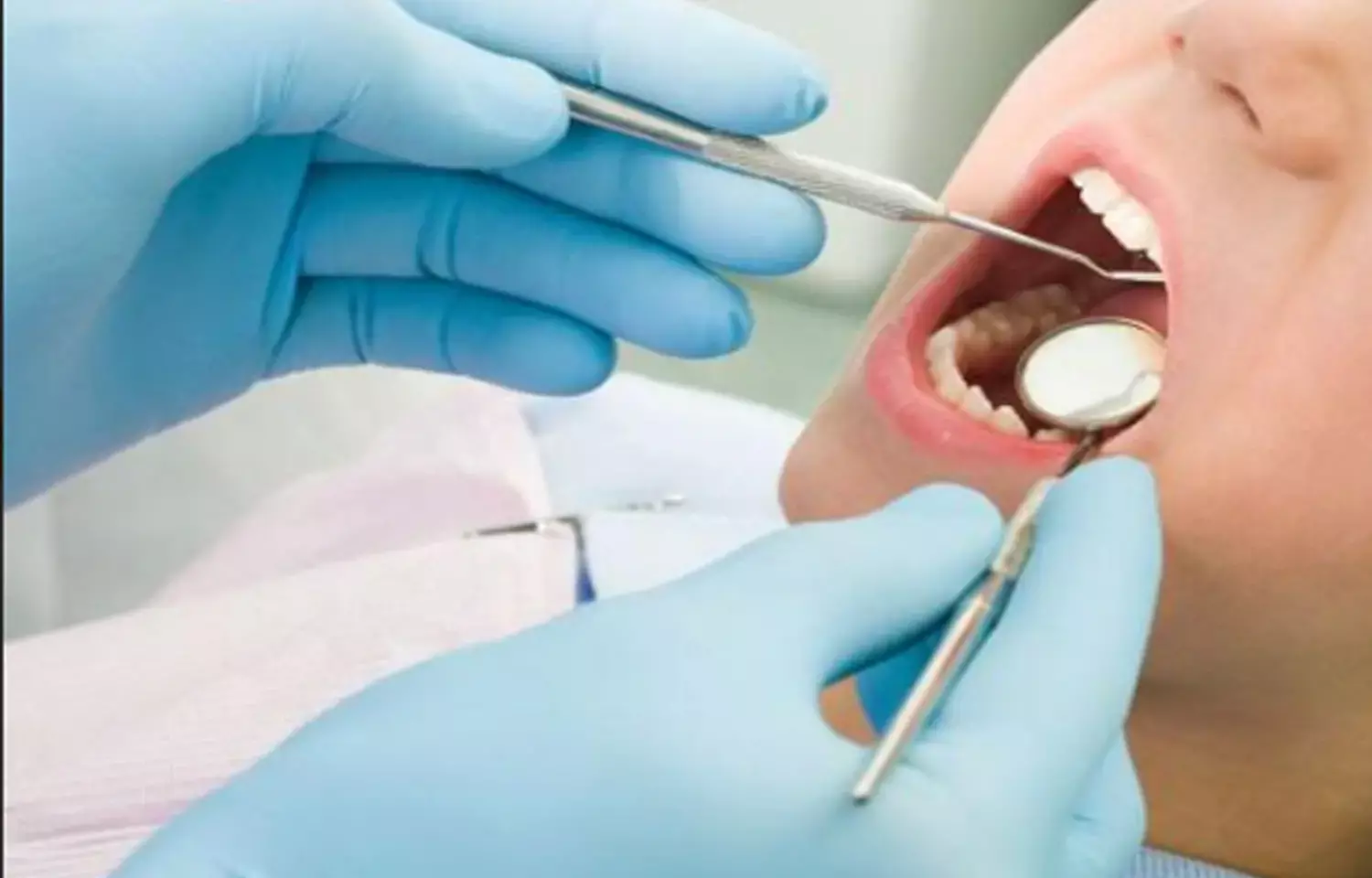- Home
- Medical news & Guidelines
- Anesthesiology
- Cardiology and CTVS
- Critical Care
- Dentistry
- Dermatology
- Diabetes and Endocrinology
- ENT
- Gastroenterology
- Medicine
- Nephrology
- Neurology
- Obstretics-Gynaecology
- Oncology
- Ophthalmology
- Orthopaedics
- Pediatrics-Neonatology
- Psychiatry
- Pulmonology
- Radiology
- Surgery
- Urology
- Laboratory Medicine
- Diet
- Nursing
- Paramedical
- Physiotherapy
- Health news
- Fact Check
- Bone Health Fact Check
- Brain Health Fact Check
- Cancer Related Fact Check
- Child Care Fact Check
- Dental and oral health fact check
- Diabetes and metabolic health fact check
- Diet and Nutrition Fact Check
- Eye and ENT Care Fact Check
- Fitness fact check
- Gut health fact check
- Heart health fact check
- Kidney health fact check
- Medical education fact check
- Men's health fact check
- Respiratory fact check
- Skin and hair care fact check
- Vaccine and Immunization fact check
- Women's health fact check
- AYUSH
- State News
- Andaman and Nicobar Islands
- Andhra Pradesh
- Arunachal Pradesh
- Assam
- Bihar
- Chandigarh
- Chattisgarh
- Dadra and Nagar Haveli
- Daman and Diu
- Delhi
- Goa
- Gujarat
- Haryana
- Himachal Pradesh
- Jammu & Kashmir
- Jharkhand
- Karnataka
- Kerala
- Ladakh
- Lakshadweep
- Madhya Pradesh
- Maharashtra
- Manipur
- Meghalaya
- Mizoram
- Nagaland
- Odisha
- Puducherry
- Punjab
- Rajasthan
- Sikkim
- Tamil Nadu
- Telangana
- Tripura
- Uttar Pradesh
- Uttrakhand
- West Bengal
- Medical Education
- Industry
Less antibiotic use in dentistry not linked to increase in endocarditis

Sweden is one of the few countries that have removed the dental health recommendation to give prophylactic antibiotics to people at a higher risk of infection of the heart valves, so-called infective endocarditis. Since the recommendation was removed in 2012, there has been no increase in this disease, a registry study from Karolinska Institutet published in the journal Clinical Infectious Diseases shows.
Infective endocarditis is a rare but life-threatening disease caused by bacterial infection of the heart valves that affects some 500 people a year in Sweden. Individuals with congenital heart disease, prosthetic heart valves or previous endocarditis are at higher risk of infection.
People at a higher risk of infective endocarditis in Sweden used to receive the antibiotic amoxicillin as a prophylactic ahead of certain dental procedures, such as tooth extraction, tartar scraping and surgery. This recommendation was lifted in 2012 due to a lack of evidence that the treatment was necessary and to help prevent antibiotic resistance by reducing antibiotic use. A collaborative project involving researchers from Karolinska Institutet has now studied how the decision has affected the incidence of infective endocarditis.
Supports the change in recommendation
"We can only see small, statistically non-significant variations in morbidity, nothing that indicates a rise in this infection in the risk group since 2012," says the study's corresponding author Niko Vähäsarja, dentist and doctoral student at the Department of Dental Medicine, Karolinska Institutet. "Our study therefore supports the change in recommendation. This is an internationally debated issue and Sweden and the UK are the only countries in Europe to restrict antibiotic use like this."
The registry study encompassed 76,762 high-risk individuals and 396,048 individuals at a low risk of infective endocarditis, who were monitored from 2008 to 2018 with the help of the Medical Birth Registry, the National Patient Register and the Swedish Endocarditis Registry.
The recommendation was supplemented in 2016 with an instruction to consider prophylactic antibiotic treatment if prescribed by the patient's doctor. It is unclear how this addition has influenced the prescription of antibiotics by dentists.
Reduction of amoxicillin prescriptions
After the change in recommendation in 2012, prescriptions of amoxicillin in dentistry declined by approximately 40 per cent. However, the study is unable to demonstrate that this was an effect of the amended recommendation and amoxicillin has other uses in dental medicine.
"The next step is to examine which dental procedures the individuals in the risk group underwent during the 2008–2018 period, since this is information we lack and it could add to our knowledge of what is to date a poorly studied issue," says Mr Vähäsarja. "This and the study we've just published could inform similar recommendation changes in other countries, resulting in a reduction in antibiotic use."
The study was financed by Karolinska Institutet, the Swedish Public Health Agency, Folktandvården Stockholm AB, the Steering Committee for Dental Research at Karolinska Institutet and Stockholm City and the Swedish Dental Association. There are no reported conflicts of interest.
http://dx.doi.org/10.1093/cid/ciac095
Hina Zahid Joined Medical Dialogue in 2017 with a passion to work as a Reporter. She coordinates with various national and international journals and association and covers all the stories related to Medical guidelines, Medical Journals, rare medical surgeries as well as all the updates in the medical field. Email: editorial@medicaldialogues.in. Contact no. 011-43720751
Dr Kamal Kant Kohli-MBBS, DTCD- a chest specialist with more than 30 years of practice and a flair for writing clinical articles, Dr Kamal Kant Kohli joined Medical Dialogues as a Chief Editor of Medical News. Besides writing articles, as an editor, he proofreads and verifies all the medical content published on Medical Dialogues including those coming from journals, studies,medical conferences,guidelines etc. Email: drkohli@medicaldialogues.in. Contact no. 011-43720751


